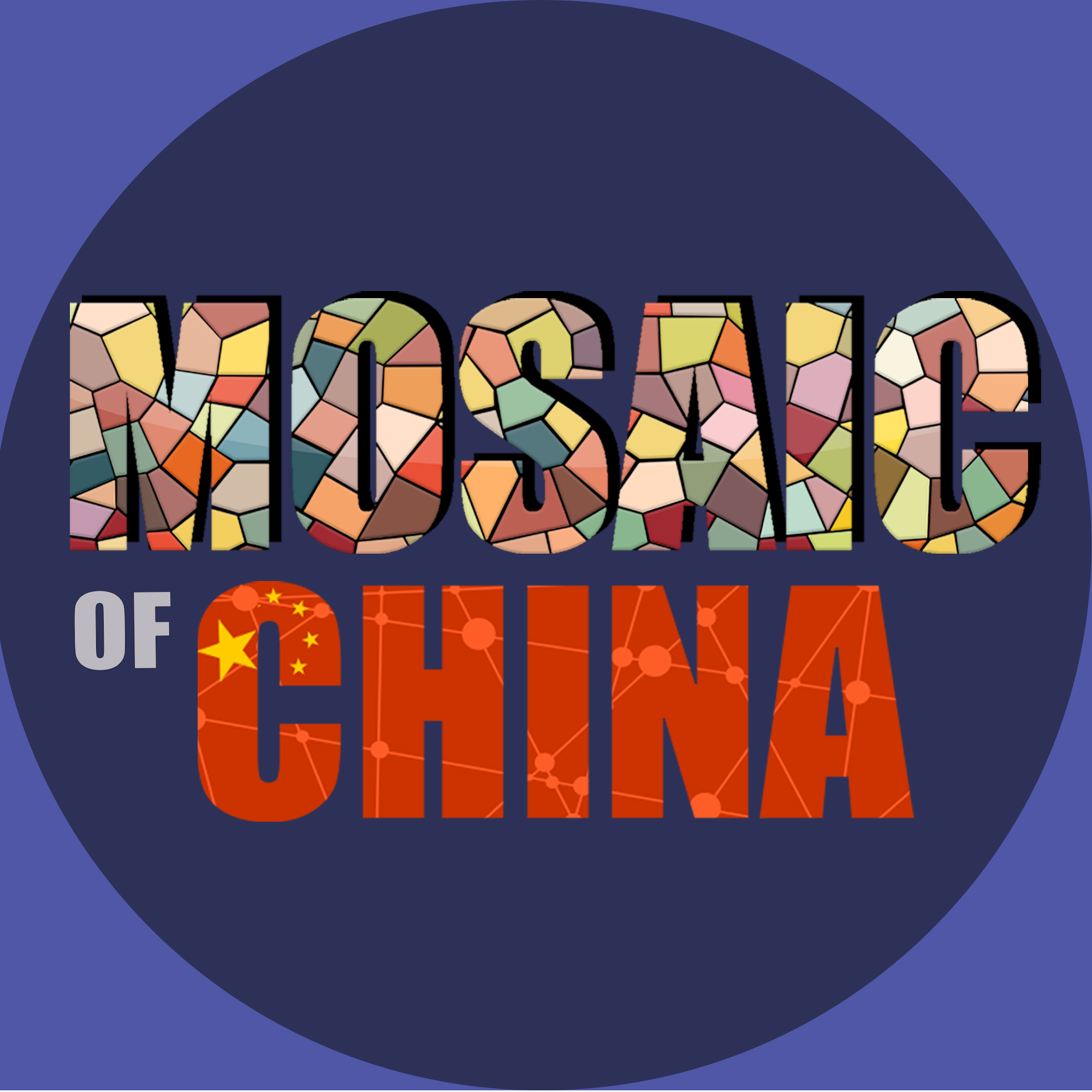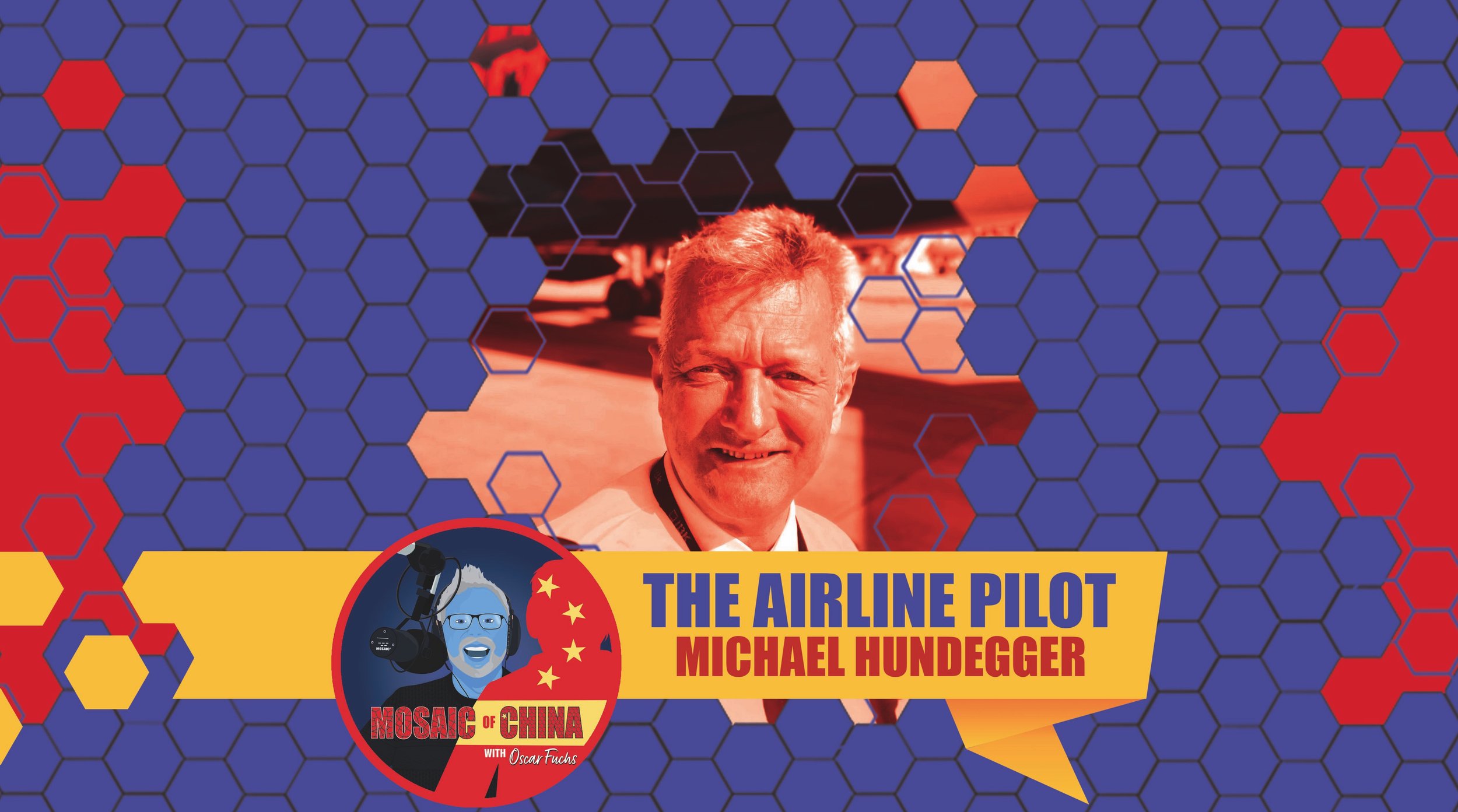Season 03 Episode 21
The details below are for the REGULAR version of this episode. For the PREMIUM version, subscribe on Apple Podcasts, Patreon (outside China) or 爱发电 (in China).
Episode 21: The Airline Pilot
Michael HUNDEGGER - A320 Commander
Original Date of Release: 23 May 2023.
To many, the image of an airline pilot conjures up thoughts of confident commanders in crisp tailored uniforms, living a life of excitement, romance and adventure. But what about the life of an airline captain in China?
In today's episode with Michael Hundegger, we have a good-humoured conversation about the culture of commercial aviation in China. Yes, there's still the romance and the adventure. Of course there's also the procedures, the strict hierarchy, and the grunt-work. But more than that, there's a fascinating window into the nature of authority, discipline and education in China.
The episode also includes a catch-up interview with Vittorio FRANZESE from Season 02 Episode 27.
Season 03 is supported by Shanghai Daily - the China news site; Rosetta Stone - the language learning company; naked Retreats - the luxury resorts company; SmartShanghai - the listings and classifieds app; and JustPod - the podcast production company.
To Join the Conversation and Follow The Graphics…
View the Instagram Story Highlight, the LinkedIn Post or the Facebook Album for this episode. Alternatively, follow Mosaic of China on WeChat.
To view the images below on a mobile device, rotate to landscape orientation to see the full image descriptions.
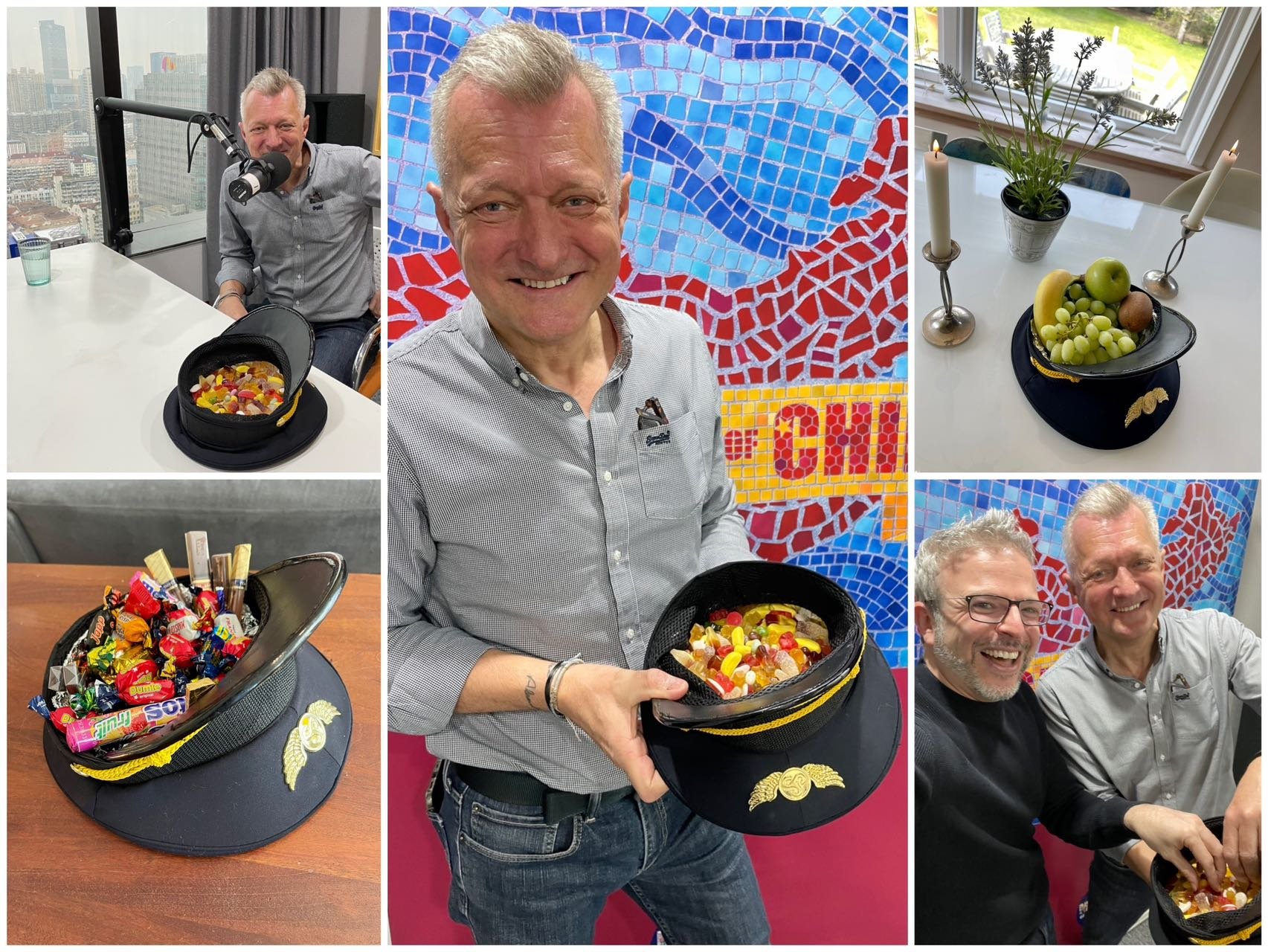
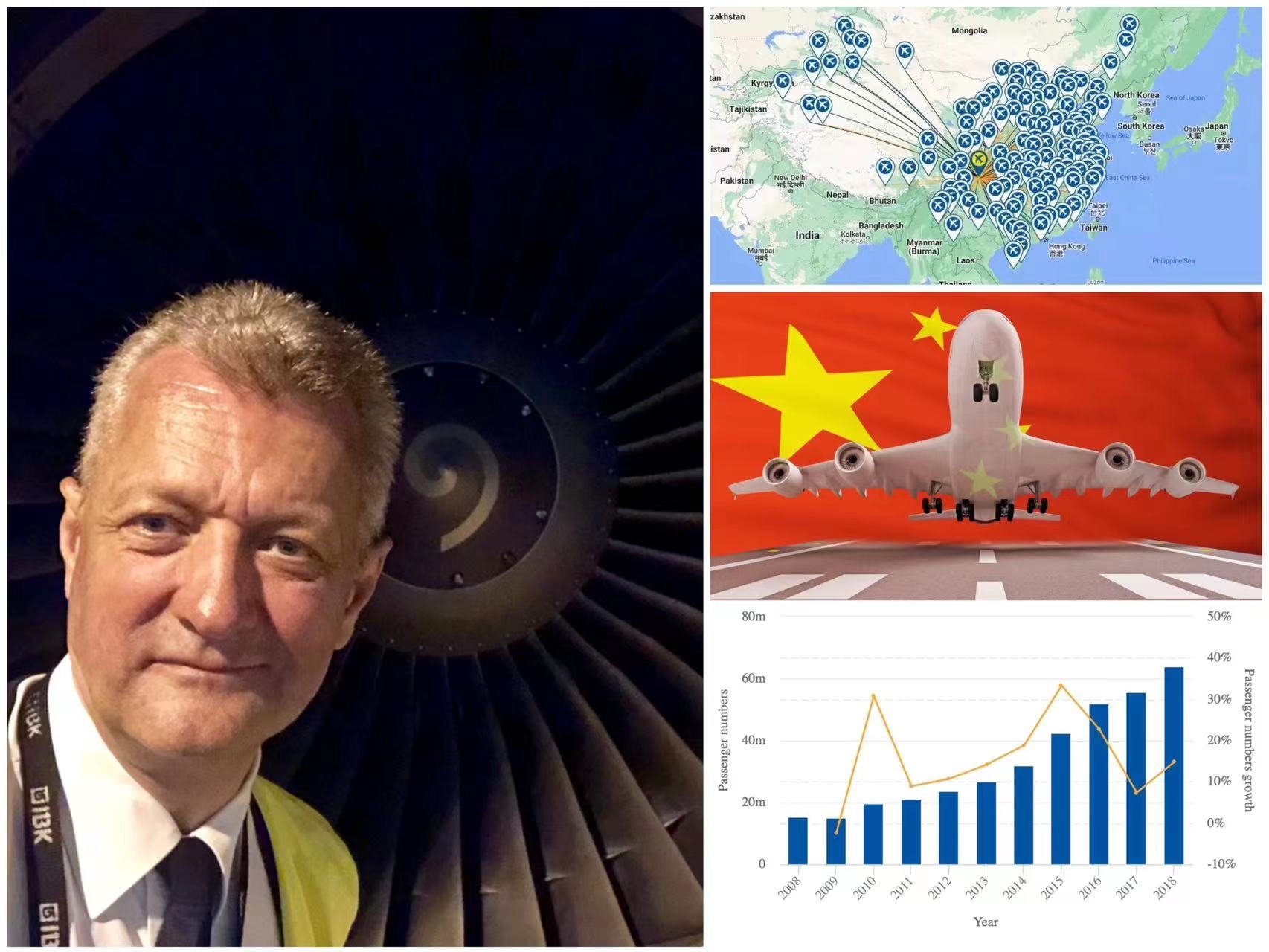
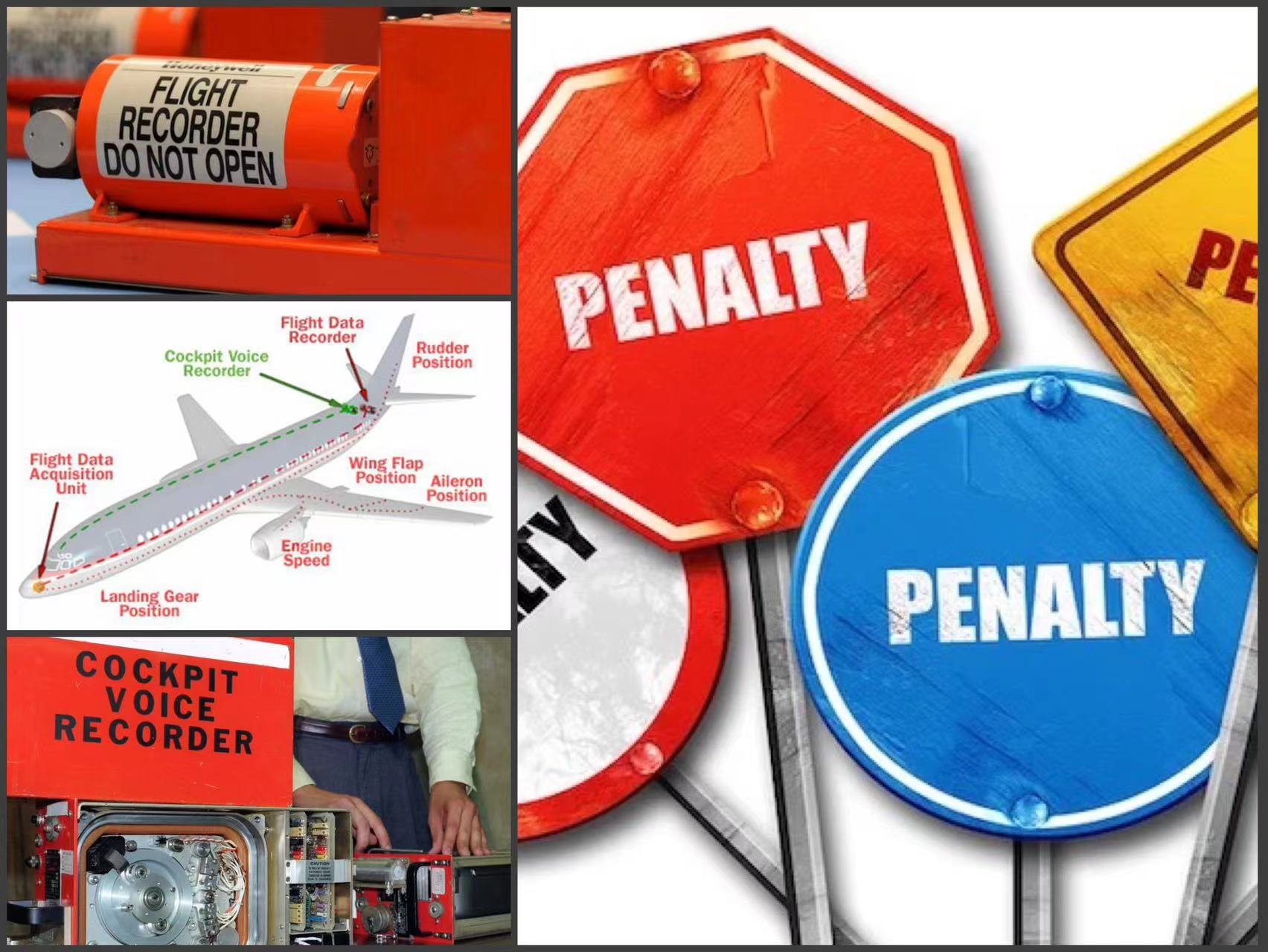
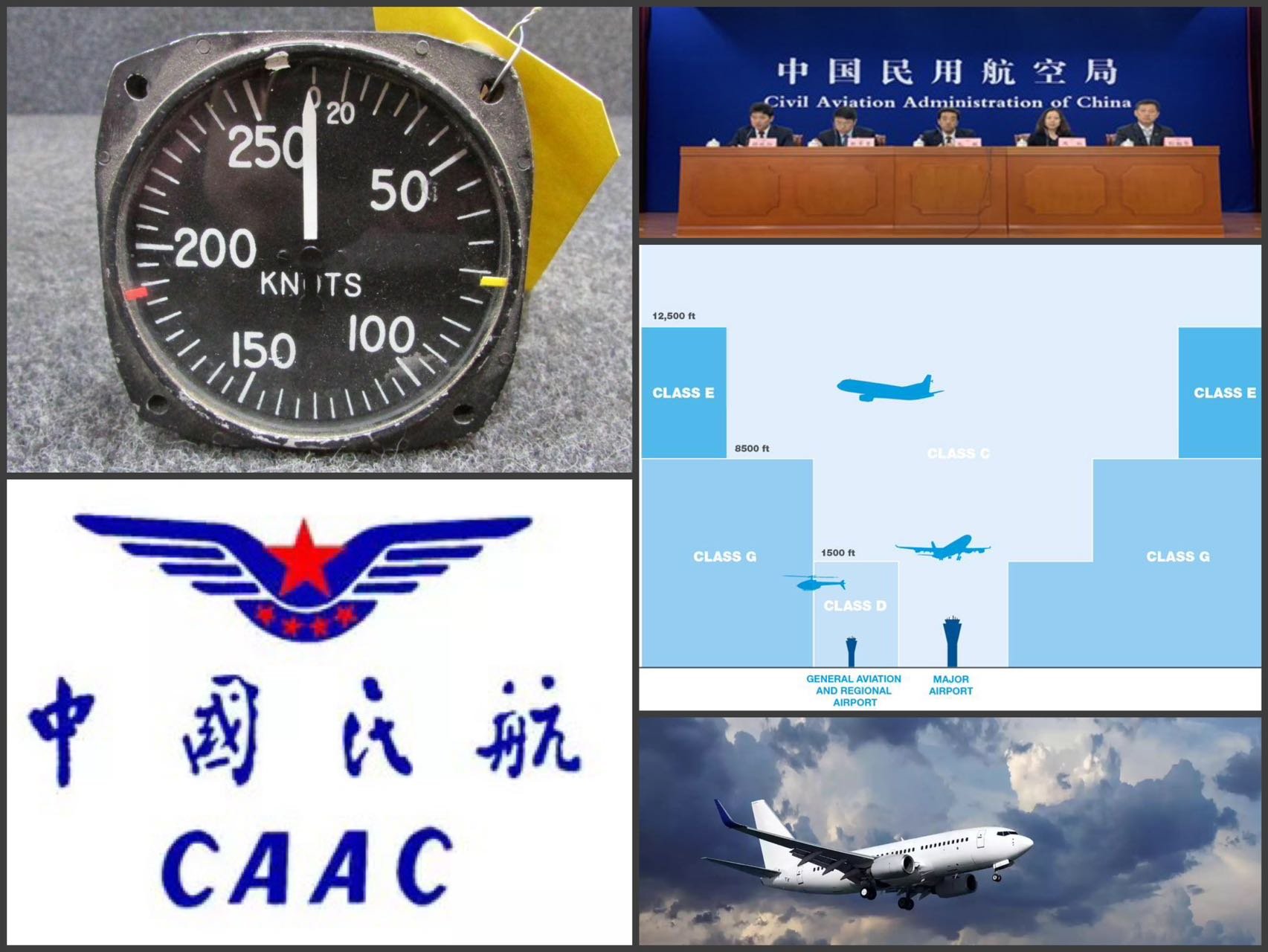
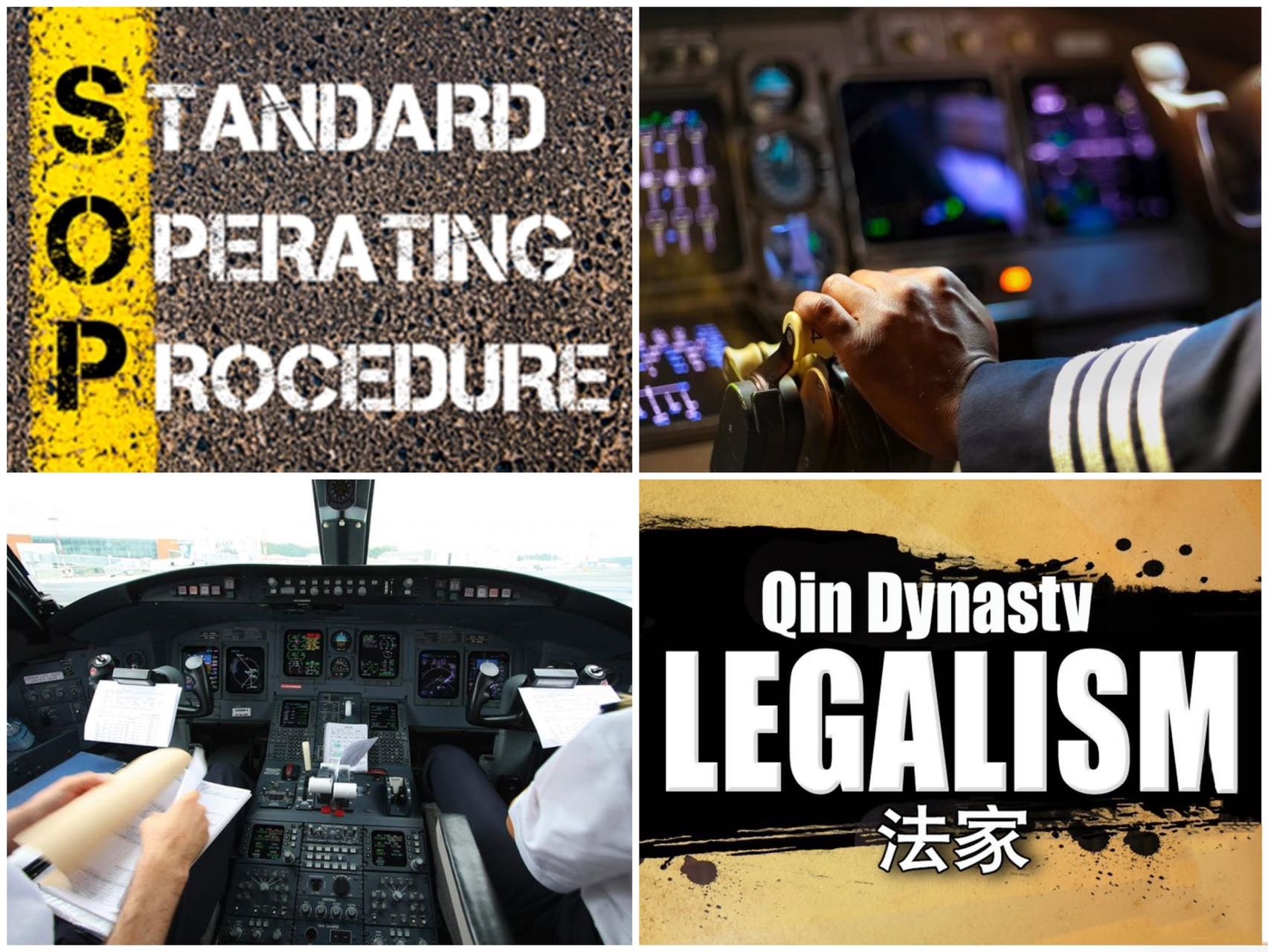
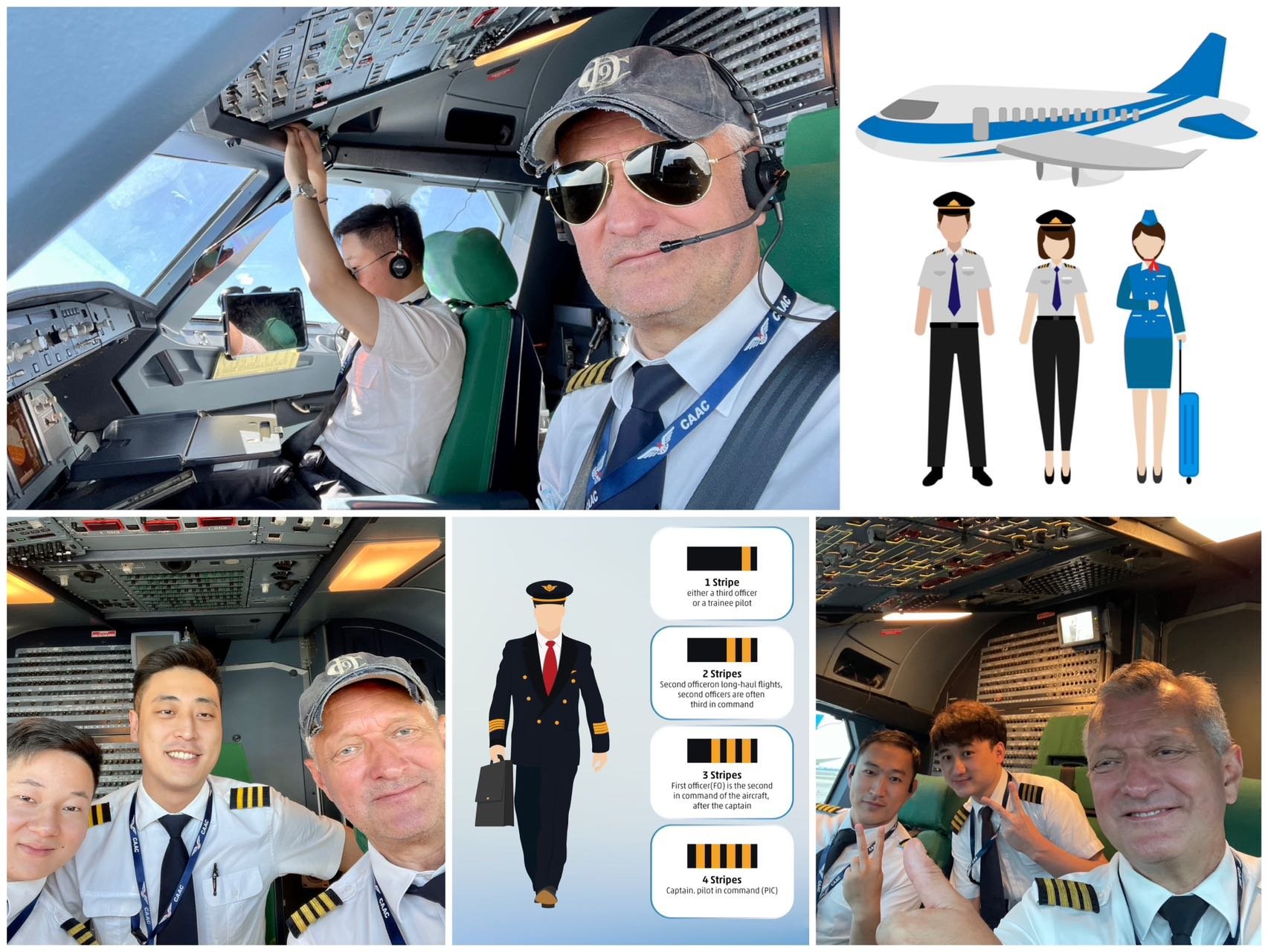
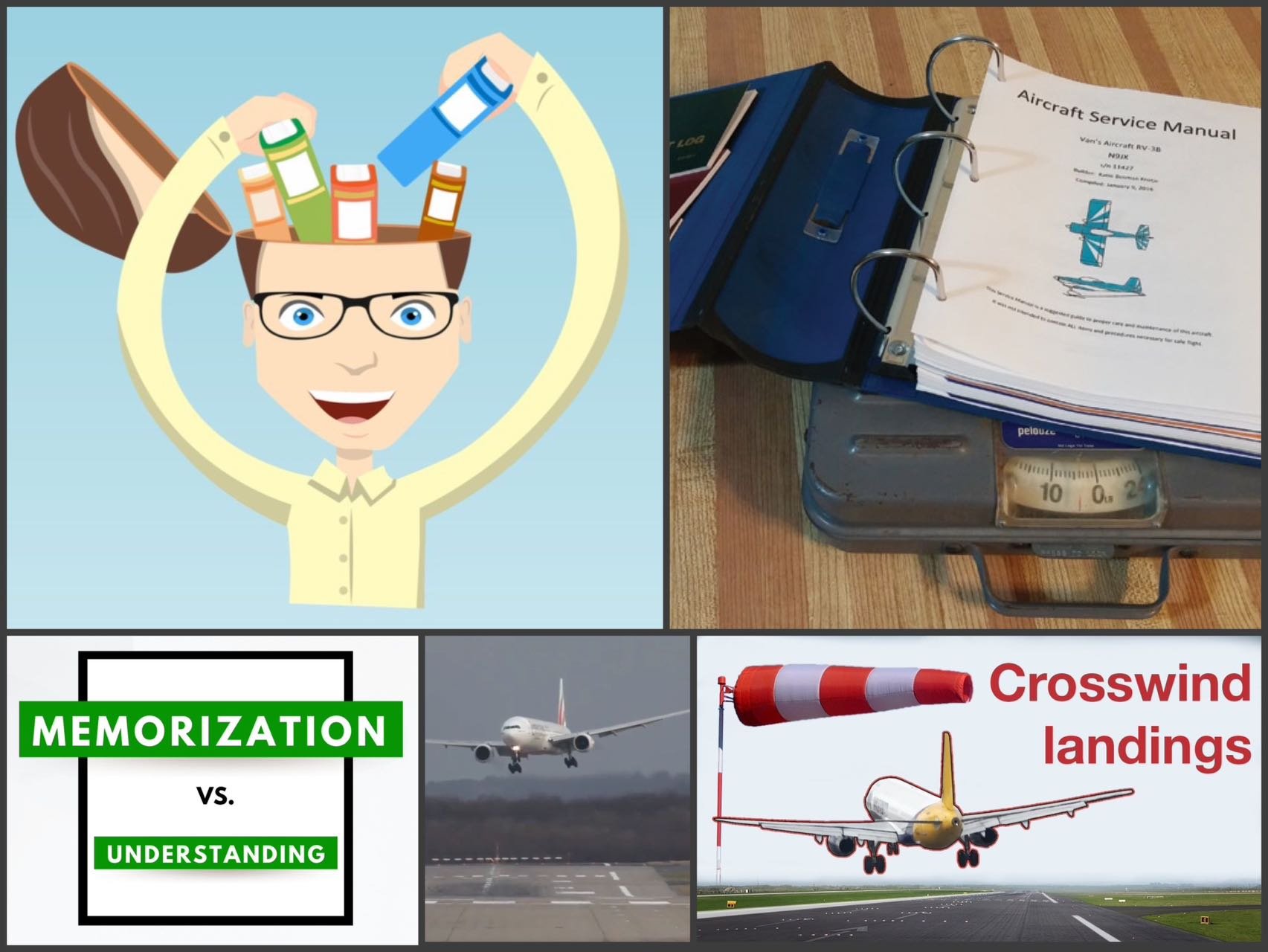
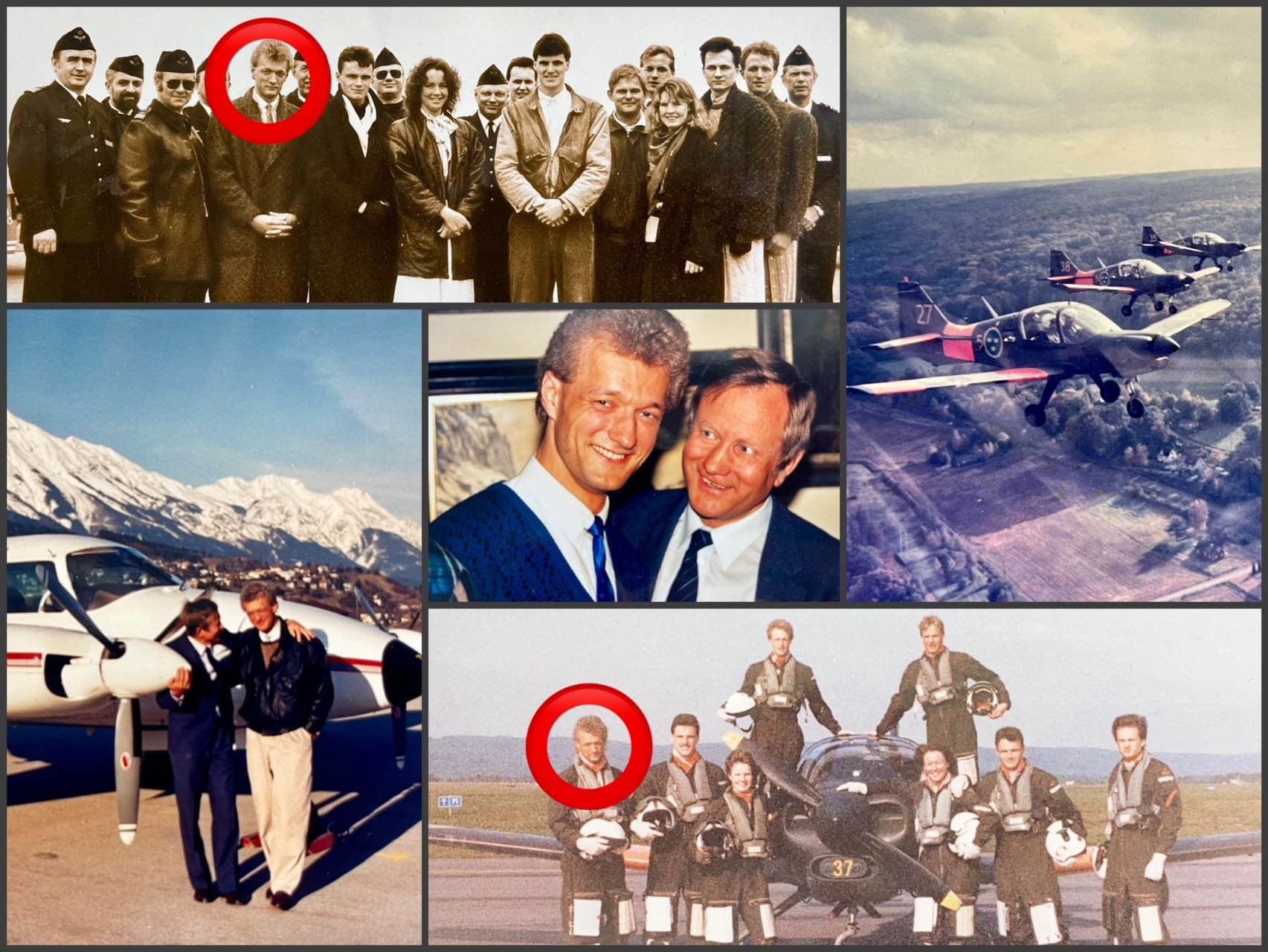
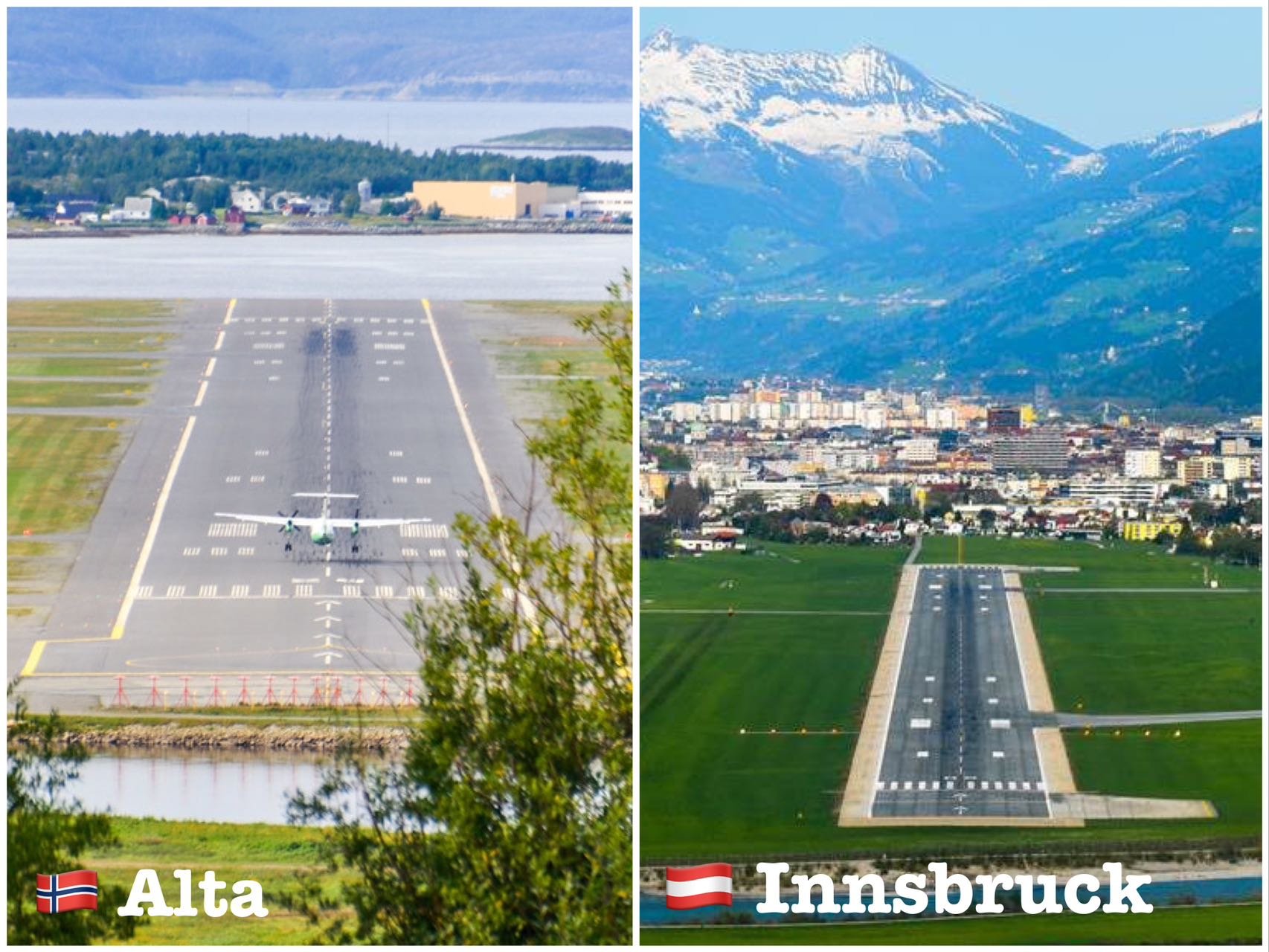
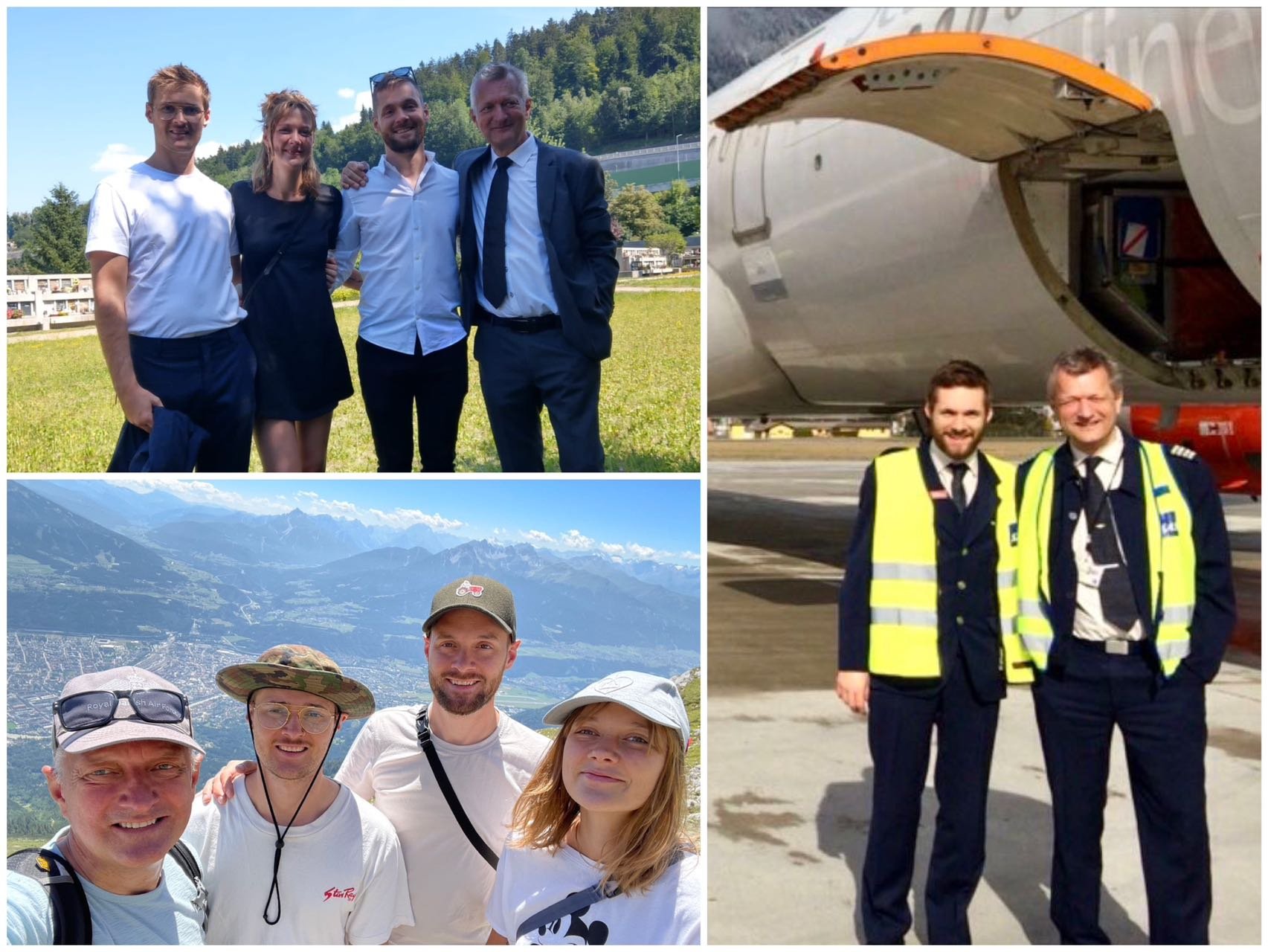
![Michael Hundegger's favourite China-related fact: The intricacy of the woodwork at temples in China, for example at 隆兴 [Lóngxìng] temple in 正定 [Zhèngdìng] near the city of 石家庄 [Shíjiāzhuāng].](https://images.squarespace-cdn.com/content/v1/5d40122274f3720001d9543b/1684630550492-QBFR1FRZ1C4VN1BX415D/CN+11631+s03e21+Michael+HUNDEGGER+E+Q01a+Fact.jpg)
![Michael Hundegger's favourite phrases in Chinese: 哎哟 [Āiyō] and 哎呀 [Āiyā].](https://images.squarespace-cdn.com/content/v1/5d40122274f3720001d9543b/1684630550903-I3O8776JD0939XGNUFR6/CN+11632+s03e21+Michael+HUNDEGGER+F+Q02a+Phrase.jpg)
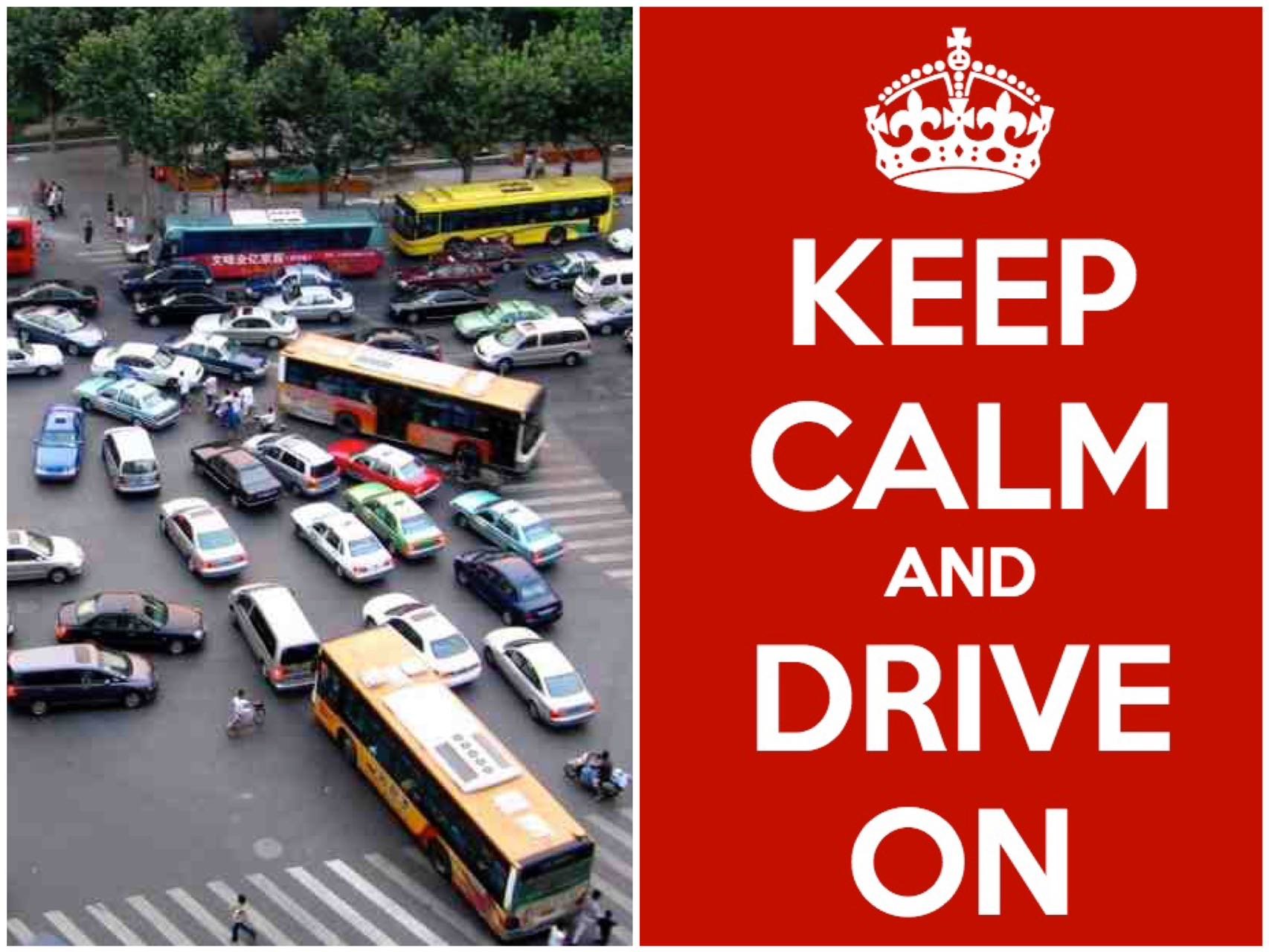
![Michael Hundegger's favourite hangout in China: The coffee shop Gregorius on 愚园路 [Yúyuán Lù] in Shanghai.](https://images.squarespace-cdn.com/content/v1/5d40122274f3720001d9543b/1684630553413-2P7ZZAL7ZB5Y4XL80TMV/CN+11634+s03e21+Michael+HUNDEGGER+J+Q06a+Hang-out.jpg)
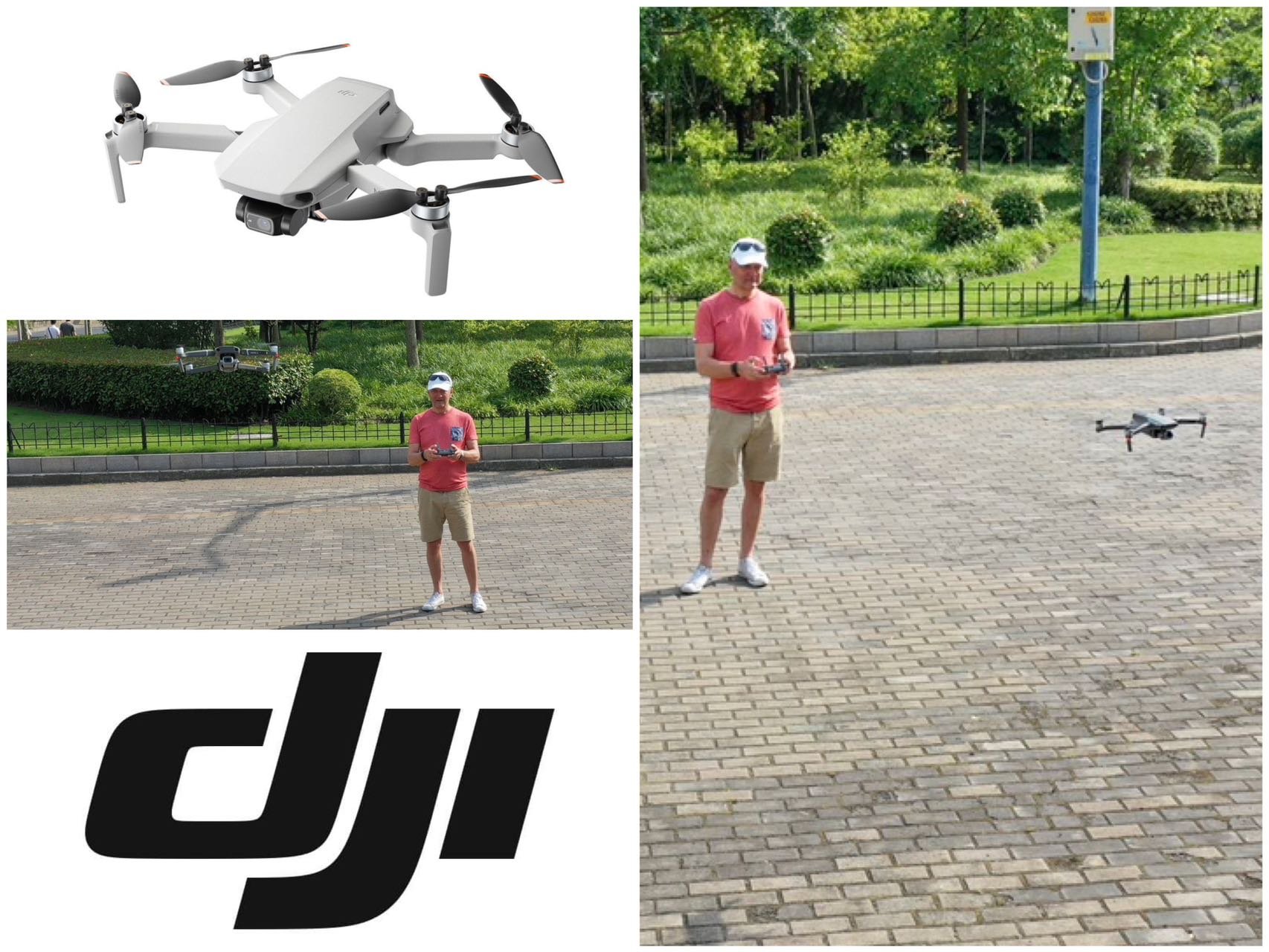
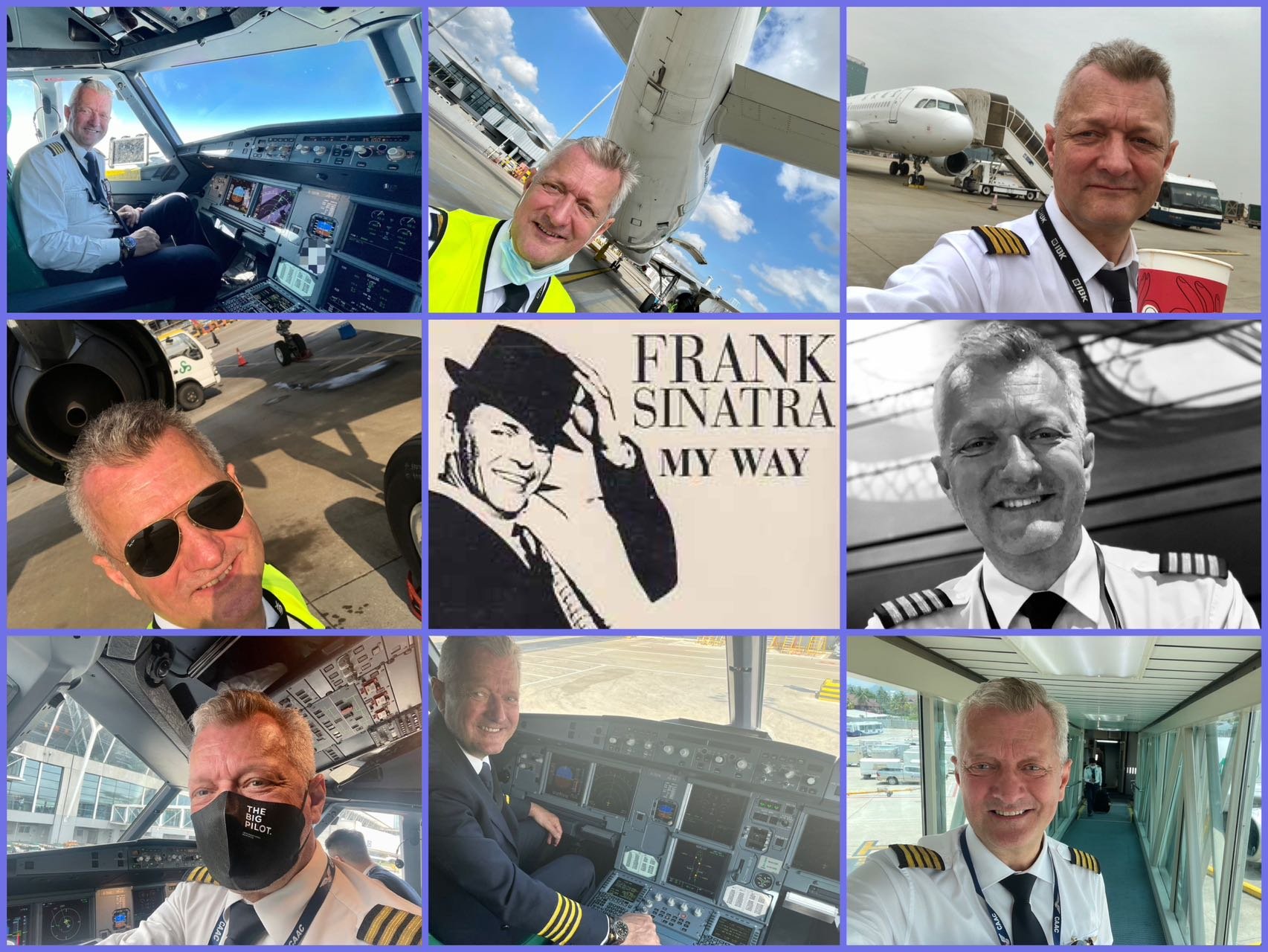
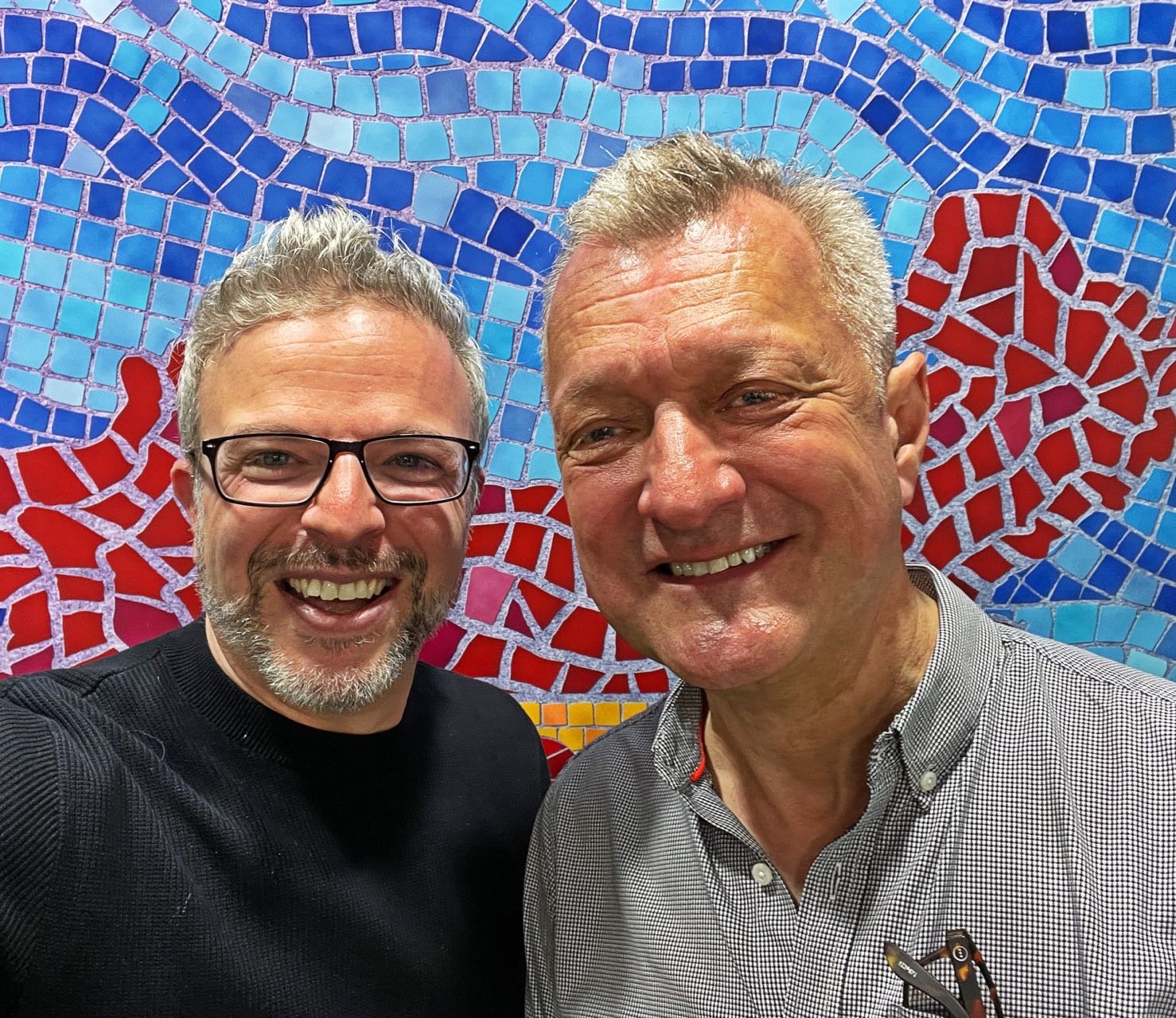
To Listen Here…
Click the ▷ button below:
To Listen/Subscribe Elsewhere…
1) Click the link to this episode on one of these well-known platforms:
2) Or on one of these China-based platforms:
To Read The Transcript…
[Trailer]
MH: If nobody understands it, why do it?
[Intro]
OF: Welcome to Mosaic of China, a podcast about people who are making their mark in China. I’m your host, Oscar Fuchs.
I was looking forward to doing today’s episode, because I thought it would be really fun to hear about the life of an international pilot here in China. And I wasn’t disappointed, that’s exactly what it was, and I can’t wait for you to hear it. But more than that, my conversation with today’s guest also revealed such an interesting window into the nature of authority, discipline and education in China. So let’s not waste any more time, fasten your seatbelts and let’s get ready for today’s show.
[Part 1]
OF: Thank you so much Michael. It's great to have you here.
MH: Thank you.
OF: And I always like to pronounce people's names properly. It's Michael Hundegger, is it?
MH: It's ‘Michael’.
OF: Michael.
MH: ‘Michael Hundegger’.
OF: Michael Hundegger.
MH: Yeah.
OF: That sounds like a German name. Where are you from?
MH: Actually, I would say I'm confused. Because I'm born in Austria, by Austrian parents. But I'm holding a Swedish passport, my mother exiled me to Sweden when I was 13. Then I married a Danish girl and we moved to Denmark. And now I'm divorced, and I'm living in Shanghai.
OF: Fair enough. This is it, you ask a man about his name and you get this kind of story.
MH: Yeah.
OF: This is what I like about starting the conversation in this way. Before we go any further, what is the object that you have brought that in some way describes your life in China?
MH: You want to see it now?
OF: Let’s see it, take it out.
MH: It's actually a piece of uniform. I call it ‘my dictators hat’.
OF: OK, why don't you describe what you've just brought out?
MH: Well, it's my uniform hat. And we got it issued when when we started. And I've haven't seen anyone wearing the hat.
OF: Really.
MH: It’s kind of ugly. So I transformed it into a candy bowl. Alternatively chips bowl, or fruit bowl.
OF: And you've never worn it for work.
MH: I’ve never wanted for work.
OF: We're being a little bit abstract here…
MH: Yeah.
OF: …About what this hat is. What is that hat?
MH: That hat is the hat of an airline captain.
OF: Right. So we’re talking to a pilot today.
MH: Yes. Yes, I'm a pilot.
OF: And I'm thinking about when I see pilots. They don't always wear the hat, but they at least have it tucked under their arm as they're walking to customs, no?
MH: Well I started flying many years ago in Scandinavian Airlines. And at that time, we had to bring the hat. Actually, it was supposed to be a piece of our emergency equipment.
OF: Huh?
MH: So if we had to evacuate the aircraft, we would put our hat on. Because then everybody would see “Oh, that's the Captain, that’s the copilot.”
OF: Yes.
MH: But that changed. Nobody wanted to wear the hat. And now nobody has the hat.
OF: Isn't it funny? So it actually came from this idea of authority bias, where people are more likely to follow the instructions of authority.
MH: Yes, yes.
OF: But now I guess what you're saying is, the uniform itself is enough. You don't need the hat.
MH: It should be, yes. And now, you know the yellow vests?
OF: Yes.
MH: If I have to evacuate an aircraft, I would put my vest on.
OF: Yes. That has the same kind of meaning…
MH: Yeah, yeah.
OF: …Without the uncomfortable hat on your head.
MH: Yeah. And yeah, I don't wanna look bad.
OF: OK, you have a sweet tooth and you’re vain.
MH: Yes.
OF: You’re explaining your personality very carefully to us. I mean, presumably you never wore it flying anyway.
MH: No, no. We would only wear it walking to and from the aircraft.
OF: Right. Well, you're here in China as a pilot. So I guess the first obvious question would be, how the hell did that happen?
MH: I got a good offer here. And I always wanted to have an adventure. I'm reaching retirement age, in my old company I could have retired three years ago. And I'm still here. And I just signed a new contract for the next three years.
OF: Mmm-hmm.
MH: So that's why I'm here: a good offer.
OF: Yeah. And I'm guessing that it would have coincided with a time when the airline industry in Europe would have been suffering, right?
MH: Yes, there was put a lot of pressure on us: competition, low cost airlines. We were working more, getting less. Our pensions were cut, and so on. And that made me a little bit tired of it.
OF: Mmm.
MH: So when this offer came in, I said “Yeah”.
OF: Which airline was it?
MH: **** had at that time the best contract on the market. Probably the best contract in the world.
OF: Really?
MH: Yes. Expansion. Expansion, and lack of experienced staff. The expansion in China is so huge. When I came, **** had around 50 aircraft. Today, six years later, it's 130. This year, another 20 come. Everyone is expanding, and they don't have enough experienced pilots. They wanted to attract as many as possible, I think they have the highest percentage of foreign pilots. We are about 130, out of 1,200 pilots.
OF: Wow.
MH: So that's about 10% foreign pilots.
OF: Hmm. And how is it subdivided then? I mean, are you just one big bunch of pilots? Or do you have specific units?
MH: They have made five units, that are in competition with each other. And foreign pilots are in the foreign division.
OF: Ah.
MH: We also have some Chinese First Officers allocated to us. A handful, 30-40. They have good knowledge of English, and so on.
OF: When you say “Compete" then, how do you compete with the other units?
MH: Safety wise. We have a flight recorder, and the flight recorder will record all kinds of parameters of the flight.
OF: Mmm-hmm.
MH: Altitude, speed, sync rate, and so on, and so on.
OF: This is like the ‘black box’ that we hear about with air crash investigations, right?
MH: Yes, yes. And this goes via data link directly to the company. And if we fly a little bit too fast; or a little bit too slow; or we make some small small small mistakes, right? We have a taxiing speed on ground that’s supposed to be maximum 10 knots. But if we turn with 11, 12 knots, that would be recorded as…
OF: A mistake.
MH: As a mistake.
OF: What you're saying is, all these little errors between pilots, they all get added up, and then you compete as these five units between each other?
MH: Apparently, yes. I don't care about it, so I don't think so much about it. But apparently there is a competition.
OF: But then do you get some kind of official prize, or an official…?
MH: No. You only get individual punishment.
OF: No prizes, just punishments! Well, let me start by asking about the actual mistakes, because this is one of the things that I'm always fascinated by when it comes to pilots. Because we're human, right? We make human mistakes.
MH: We do. Every day.
OF: This is so worrying. But you've mentioned already that you might get a little bit too fast. Like, is that the usual mistake that you would make?
MH: Yes, that will be one of the mistakes. The airspace is divided into different altitudes. And here in China below 10,000 feet altitude, the maximum speed is 250 knots.
OF: Is that a world standard?
MH: Many airspaces around the world are restricted too. But then the controller can give us permission.
OF: Mmm.
MH: “Speed up.” Maybe we can speed up to 300 knots. Here, it’s 250 knots.
OF: No matter what.
MH: No matter what.
OF: Mmm-hmm.
MH: I would think in an emergency - if I have a big fire onboard and I need to get down on the ground, I wouldn't care about the 250 knots.
OF: Right.
MH: And then they can punish me for speeding. But I will tell them “Well, I saved 190 lives”, right?
OF: Yeah.
MH: But if I fly 255 knots, I would get a tick mark. If I fly 265 knots, I would get a question, “Why did you fly fast?”
OF: OK.
MH: And that would probably cause some kind of incident. or event. And maybe there would be some money deducted.
OF: From your salary?
MH: From my salary, yeah.
OF: Mmm-hmm.
MH: There’s a price list for everything. And here, it's a lot about following standard operating procedures.
OF: Mmm.
MH: You have to follow those. And every time there is one little incident somewhere, the CAAC will demand that the standard operating procedures be changed. So we have changes to the procedures all the time.
OF: Right. Because a lot of what you're saying, it’s measured through your airline. When does it get escalated to the CAAC? Which I'm assuming means the ‘Aviation Commission’, is it?
MH: This is the Central Aviation Administration of China.
OF: Aha.
MH: Actually, I do think the CAAC has insight into everything.
OF: Ah.
MH: If we write a report, the CAAC will see it.
OF: Mmm.
MH: We have something called a Quick Access Recorder, which is also listened to. And we have an open mic in the cockpit, which - for some specific flights - someone sits and listens to what we're doing.
OF: In real time?
MH: In real time.
OF: Mmm.
MH: And if I have many of those incidents, maybe I will be grounded for a week and set to study the standard operating procedures.
OF: And this is - as a passenger - kind of what I want to hear, right?
MH: Yeah.
OF: I mean, I'm assuming that in many ways, this is the same thing that happens anywhere around the world. So you tell me, in which parts is it actually quite different to what you've been used to.
MH: It is the same everywhere when it comes to structure, standard operating procedures, safety awareness. What is not the same is punishment for mistakes. Other aviation authorities have non-punitive reporting systems. So if I make a mistake, I've report it, and everybody else learns from it. Here we learn from the punishment.
OF: That seems like a very legalistic way that sometimes China can work.
MH: It is, yes. To me, it's a big difference in the mentality. Here when somebody tells people to do something, they say “Yes.” And back in the West, if somebody tells me to do something, I say “Why?”
OF: This is classic, isn't it?
MH: Yeah.
OF: I mean, this is probably why the likes of your previous employers in Europe got tired of miserable old pilots like you, right?
MH: Yes. Yes, yes, yes. Lazy, old, expensive. So…
OF: Which is better? I mean, presumably it has the same outcome. Or..?
MH: I think it has the same outcome. In my industry, at least. For your personal wellbeing, I prefer the other way.
OF: Right.
MH: Not having to look over my shoulder, and being afraid that somebody writes a report. Or that if I make a mistake that I will be punished, that maybe my career ends.
OF: Mmm. You live with this sort of constant ‘drip, drip, drip’ of feeling uneasy, and being punished.
MH: Yeah.
OF: And that is kind of how it works in China. It's this constant “I know what you're doing. Don't do anything wrong.” It's that whole way that we live our lives day to day here.
MH: Yes, yes. It's all being recorded.
OF: Mmm. In Europe, I'm guessing that you record because you want to have that black box for investigations.
MH: Yes. Most of the unionised airlines have an agreement that the voice recorder is used for investigation purposes only. But otherwise, they use it for trends.
OF: Mmm.
MH: To see the safety trends.
OF: And even then, it would have been anonymised, right?
MH: It would be anonymised. General. How often would the general population of pilots do this, and that?
OF: Yes.
MH: Do we have to change our standard operating procedures or not?
OF: Yes. Across the whole data set. Like “Right, how do we in general improve standards?”
MH: Yes.
OF: Not “How do we punish this one person for this one mistake?”
MH: No.
OF: Yeah, so interesting. OK, well I mean, we're talking about the culture of these airlines. So why don't we then talk about the culture between you and your co-pilot? What's their rank?
MH: They are first officers.
OF: First officers.
MH: First officers. Normally I fly only with Chinese crew.
OF: Right.
MH: Chinese first officers, Chinese cabin crew.
OF: So talk me through what happens in the cockpit between you two. Let's say, you've already taken off. Most of the work is done by the computer, right?
MH: Yes. We are monitoring.
OF: Mmm-hmm.
MH: Imagine you sit in front of your computer screen, and you have to monitor your computer doing the correct thing at all times, right?
OF: Yeah.
MH: And depending on my first officer's knowledge of English, we are chitchatting. I'm an old fart, right? So we don't have much in common.
OF: Yeah right.
MH: But many of them are interested. Interested in life in Denmark or Austria or wherever. They are interested in how many kids I have, and so on and so on. So we chitchat. But they are studying. When they join the airline, they are First Officer Level Alpha 1.
OF: OK.
MH: A1, and then they upgrade to A2. Then B1, B2, C1, C2. And after they have reached the level of C2 first officer, they can upgrade to Captain A. And..
OF: And then there are different hierarchy of captains too?
MH: Yes, there are three: A, B and C.
OF: So you are..?
MH: I’m C. For us foreigners coming here, we all start as Level B Captains. And when we have been flying 500 hours within the airline, we normally are upgraded to C Level. Because we are experienced. But these first officers, for every upgrade they have - they have five upgrades - they have to do oral tests, they have to do written tests, and they have to do simulated tests.
OF: Constantly, basically.
MH: They are constantly tested and constantly studying. And they are really good students.
OF: Mmm.
MH: They know the manuals. If I have any question, I just asked them.
OF: Which wouldn't have been the case for you at that age?
MH: No. We know where to find information.
OF: Mmm.
MH: We do not learn the information by heart.
OF: Like, comprehensively, all in your head. Right.
MH: Yes. That is probably the schooling system difference already there.
OF: Yes. I think we would tend to put more emphasis on the problem-solving skills.
MH: Yes.
OF: Whereas they would put emphasis on the actual knowing of information.
MH: Yes. And they put emphasis on the knowing, and not on the understanding.
OF: Ah. But I guess that's a good thing about why - when you are flying with a first officer who was brought up in that education system - you can in some way impart that kind of sixth sense to them.
MH: I try to do that. I'm not an instructor, so I don't try to instruct them. But I try to share my experience.
OF: Mmm.
MH: I’ve been flying for a lifetime. 35 years.
OF: OK.
MH: I’ve been flying 35 years, I have 19,000 flight hours. So I'm quite experienced.
OF: Yeah.
MH: And I do much of my work by feeling.
OF: It’s instinct.
MH: It's instinct. And for the young guys, they do it mechanically.
OF: Mmm. But again, that would be the case if you weren't flying in Europe, right? I mean, that's how you do start.
MH: Yes. Yes, but we were taught to feel. “Oh, you have a little gust here during landing. Try to feel it, and fly the aircraft all the way down until the wheels hit the ground”. Here, sometimes they are taught “At 50 feet, you do this. And you do that.”
OF: Mmm-hmm. Interesting. Going back to you and the first officer then, as a commander what are the things that you can do that first officer cannot? Or are you actually on par, you just have different titles in that cockpit.
MH: Theoretically, we're doing the same.
OF: Mmm.
MH: The biggest difference is the responsibility, which the commander has for whatever happens onboard the aircraft. But there are some differences in handling the aircraft. There are some rules in the company. For instance, they cannot land on wet runways, in darkness, with a crosswind of more than 10 knots.
OF: No risks taken.
MH: Yes. I would do that anyway. Because I'm responsible, and I don't want to be punished for his mistakes.
OF: Yeah, I can see why the culture would breed that response.
MH: It does.
OF: Whereas if you were in Europe, you would say to the first officer “No, you should try it, have a go,” right?
MH: Yeah, yeah.
OF: Yeah.
MH: In Europe, we have some limits. When I started, I couldn't land in crosswinds over 15 knots for the first six months I was flying in my old airline. But after six months, I was allowed to go up to the maximum. I could do anything. I was allowed to do that. Here, you’re not.
OF: It would take how many years, do you think?
MH: It's all the way until they upgrade to captain. And then suddenly they can do it!
OF: Yeah. And with ****, where do they fly?
MH: We go to 深圳 [Shēnzhèn], 广州 [Guǎngzhōu], 沈阳 [Shěnyáng] - I’ve just been in 沈阳 [Shěnyáng] for two weeks working there - 成都 [Chéngdū], 重庆 [Chóngqìng]. Sometimes we go there and have one day off in the middle of our four-day working schedule. So then I go sightseeing.
OF: That’s good. So you do have time to do that.
MH: I do have time to do that. Most of the time, unfortunately we stay very very close to the airports. And some places it's so far away, there is almost no time to go to the city.
OF: Yeah.
MH: But some places are nice.
OF: Is that actually the reason you became a pilot? I'm thinking now about your origin story. What was it at the beginning that made you want to be a pilot?
MH: Oh, I didn't know I could work as a pilot. My dad had a private pilot's licence. And one day he took me flying.
OF: Mmm. This is how old?
MH: I was 15. And I said “Wow, that’s fun. I would like to do that”. And he said “Yeah, if you do well in school, I'll pay for you to get a private pilot's licence. And I didn't do that well in school, so I didn't get the licence from him.
OF: Oh.
MH: And then I had a girlfriend and she was working for a Swedish newspaper, and she had to put an ad in for a newly started flight school. This girlfriend sent me the ad, and said “Hey, your dad once promised you a private pilot's licence. Here, you can actually work as a pilot”. So I applied and I was lucky, I got in. And I haven't looked back since.
OF: How do you think you would characterise the personality of a pilot?
MH: We are pretty similar. We are structured.
OF: Structured.
MH: We follow rules. And we are good at teamwork, at working with other people. And I say that because we don't work with the same people, we never get to know the people.
OF: Mmm.
MH: So we have to be able to work with strangers quite intimately, actually.
OF: A lot of your job is communication.
MH: It is, it is. We depend on each other.
OF: What are you like when you're a passenger on a plane, and you're not the one in control?
MH: Oh, I know I'm in good hands.
OF: Oh, really?
MH: Yes.
OF: You're not the one who’s like “No, let me do it”?
MH: No, no, no, no. No, no.
OF: There's no such thing as a back seat pilot.
MH: Oh, I can - in my mind - comment on landings. But then again, I know I make the same good and bad landings.
OF: Oh, I see.
MH: A bad landing for a pilot is not what you would consider bad landing.
OF: There are nuances that you notice.
MH: Yes.
OF: Right.
MH: Yes, yes. I want to make landings where you as a passenger wouldn't even feel that we've landed. And here in China, it should be easier to do that. Because we have long runways here.
OF: Ah.
MH: So there is never a problem of being limited by the runway length. In Europe, you have shorter runways, so you have to really put the aircraft down in the right spot.
OF: This is a legacy issue, right? Because they’re all older.
MH: Yeah, here they build the big airports, and it’s…
OF: Massive from the start, yeah.
MH: They’re big from the start. And then the enlarge them.
OF: Yeah. Which are the hardest airports that you've landed in, around the world?
MH: Actually, there is one very very far up in Norway: Alta. And we used to fly in there with the DC-9, but there was almost no automation on it. And it was in the bottom of the fjord, you had to fly around the edge of the fjord and then dive down to the runway. That was a difficult one.
OF: Wow.
MH: And the other one is my hometown in Austria, Innsbruck.
OF: OK, yeah.
MH: Innsbruck is a special airport, with a short runway, mountains around everywhere, with maximum crosswinds and bad weather and so on. And the Austrian authorities demand that the pilots who fly there are specially checked out.
OF: Yeah. Would you say you prefer that kind of landing, because it's a challenge? Or would you prefer just the day-in day-out ones?
MH: When I got the chance to fly to Innsbruck, I wanted to do that. One of the reasons is that I like the challenge. The other reason was, when I came to Innsbruck, I would call my dad who was living there. I would call him before I flew there, and then he would come to the airport, and I would have a cup of coffee with my dad, and chitchat, and then fly home again.
OF: OK. I mean, you brought up the subject of your father, it makes me think about what is the intersection between your job and your life. How do you think being a pilot has bled into the way you live your life outside? Because it's very much a lifestyle, right?
MH: It is. Oh, before I came to China, I was working five days, four days off; five days, four days off. And then of course, all the vacations. And I was married to an air hostess.
OF: Mmm.
MH: And she was working the same shifts. When we got kids - I have three - when I was off, she was working; when she was off, I was working.
OF: Yes. Because you couldn't both be off at the same time.
MH: We thought our kids were more important than our being together.
OF: Yeah.
MH: So when we finally had vacations, we used to have good family times, right? When I came here, it was different. Because now I'm divorced, I'm on my own, right? But a problem is social life. It's difficult to make plans. Most people work Monday to Friday. So when we got invitations, it would be “Oh no, I cannot come, I’m at work”.
OF: Which you can say two or three times. But then the fourth time, you just don't get invited, right?
MH: Yeah, we ended up with having most of our friends in the same industry.
OF: Yeah.
MH: We would go out for dinners on a Tuesday instead of doing it on a Friday. The schedules.
Here it's four days on, two days off.
OF: Oh, is it? So you have a six-day week?
MH: I have a six-day week.
OF: Which means that you really can't have much of a routine.
MH: No.
OF: Which is, in general, how you've lived your life for 35 years, right?
MH: Yeah, but here the advance notice is shorter. In Europe, I got my schedule up to six weeks notice. Here it's two days. I don't know what I’ll be doing on Monday.
OF: Yup. Michael, thank you so much. It's been great to speak with you.
MH: Thank you.
OF: And I can't believe that I have been looking at you this whole time, with the candy in your hat, and I haven't been tempted to have even one. But we're coming up now to Part 2, so in our break, I am going to definitely have one.
MH: Yeah.
OF: So let's move on to Part 2.
MH: OK.
[Part 2]
OF: These are good. Do you actually eat sweets when you’re flying?
MH: Chocolate.
OF: A lot of your job is sitting down, right? So sitting down, eating chocolate, but you still look thin. What’s your secret?
MH: I don't eat anything else. You've eaten airline food, right?
OF: Do you get the same food in the front?
MH: I think it's worse.
OF: Really?
MH: Yeah.
OF: Oh no.
MH: I think crew gets special meals. The special meals are cost.
OF: Yes.
MH: So quality of food is not a priority.
OF: Yeah. Are you allowed to bring your own food?
MH: Actually it says in the manual I'm not allowed, no.
OF: Well, we'll go on now to Part 2 with the questions. We've been talking about how you're someone who likes structure, so I'm assuming now you're very well prepared for these 10 questions.
MH: Most of them.
OF: Well, let's go to Question 1, which comes from Shanghai Daily: What is your favourite China-related fact?
MH: The woodwork. I don't understand how they could build all those temples - and the roofs, and wooden structures - without using a nail or anything else.
OF: Yes.
MH: And after thousands of years, it’s still there.
OF: Mmm.
MH: That is, for me, amazing.
OF: Is there one recent temple which had this kind of woodwork that you particularly remember?
MH: I just went to a temple close to the airport in 石家庄 [Shíjiāzhuāng], 正定 [Zhèngdìng]. It was beautiful.
OF: Oh, well I’ll get a photo of that, if you don't mind.
MH: Yeah.
OF: Question 2, which comes from Rosetta Stone: Do you have a favourite word or phrase in Chinese?
MH: Yes. I use it all the time: 哎哟 [Āiyō].
OF: 哎哟 [Āiyō].
MH: 哎哟 [Āiyō], 哎呀 [Āiyā]. And it's so useful, you can use it in any situation.
OF: It's true. This harkens us back to Season 01 with Yael Farjun, who also chose this as her word. How would you describe the meaning?
MH: If I dropped my coffee, or somebody surprises me.
OF: Have you picked this up from your Chinese girlfriend?
MH: Yeah, probably. She was my teacher, my Chinese teacher.
OF: Aha.
MH: But she hasn't been teaching me since we started dating.
OF: Thinking about words that you hear often, in your work are there certain phrases that you hear as a pilot that you've just picked up?
MH: Yes, there's one. When the passengers come, I hear them say 上客 [shàngkè].
OF: Yes.
MH: So that apparently means the passengers are coming.
OF: That's a good one. Because 上 [shàng] has the meaning of 'to start’, ‘to get on’.
MH: Yes. And 客 [kè] is the passenger, right?
OF: Exactly.
MH: I hear that often, yeah.
OF: Good. Question 3, which comes from naked Retreats: What's your favourite destination within China?
MH: Depends on if it's work or privately.
OF: Mmm.
MH: If it's work related, I like 沈阳 [Shěnyáng] because there we stay at a good hotel, with a good location, lots of restaurants around.
OF: Ah.
MH: And it's close to the city instead of being close to the airport.
OF: Nice.
MH: 宁波 [Níngbō] is the same. For pleasure, I like 三亚 [Sānyà].
OF: Ah yeah.
MH: And layovers in 深圳 [Shēnzhèn]. If I had 24 hours there, I would take the subway to get to Hong Kong. I love it.
OF: Yeah. Next question. If you left China, what would you miss the most, and what would you miss the least?
MH: The most, I would miss the convenience of Shanghai life. I love sitting in my home, and it's raining outside. And I didn't buy cucumber for the salad, so I order it, it’s there.
OF: Yeah. And the thing that you would miss the least?
MH: The least…
OF: Apart from being punished by your airline.
MH: Shanghai traffic. That's actually chaotic. Nobody looks back.
OF: Yes.
MH: But there is no road rage, no road rage whatsoever.
OF: Apart from me. And you, right?
MH: And me.
OF: I know, this is it, right? We are the ones who are making it hard.
MH: Yes. I think here, the only way to stop behaviour that is not according to the rules is cameras. And they are being punished.
OF: Right.
MH: Maybe because the system is built on obedience. And not personal trust.
OF: Yes. Next one, is there anything that still surprises you about life in China?
MH: Yes. The way Chinese people - at least outwardly - accept things we protest over so loudly in the West. Like, I complain a lot about not being able to travel back to my kids. The answer I get from Chinese people is “It's the same for everyone. Suck it up baby.”
OF: Mmm. I get it. It comes from just, you never know here, there's always something changing.
MH: Yeah.
OF: I think people have been used to things changing so much that it’s just “OK, well here's one more thing”.
MH: Yeah.
OF: The next thing, which comes from SmartShanghai: Where is your favourite place to go out, to eat or drink or just hang out?
MH: Gregorius on 愚园路 [Yúyuán Lù]. It's amazing coffee, it’s good. It's small, it’s cosy.
OF: OK.
MH: It’s really good.
OF: All right. What is the best or worst purchase you've made in China?
MH: The best is my drone.
OF: Your drone, aha.
MH: I bought a DJI drone, and…
OF: Is that a Chinese brand or..?
MH: Yeah. And it was amazing. Until it committed suicide in 沈阳 [Shěnyáng].
OF: Are you sure it wasn't murder?
MH: Yeah, it was on a pre-programmed track. It was supposed to fly around the stadium and make a nice video. It was flying, and suddenly I saw on the phone: ‘connection lost’.
OF: OK.
MH: And normally when it loses connection, it should return to the home point. Nothing happened. Nothing happened, I waited 10 minutes, nothing happened.
OF: It's so classic that you spend your whole time flying planes. And then as a hobby you like to fly little toy planes. What is your favourite WeChat sticker?
MH: OK.
OF: OK, what is this one?
MH: This is just ‘**** it’. It's a cat sitting there. And it's ‘I don't care about that’.
OF: This is brilliant.
MH: It's quite nice.
OF: I’ve not seen this. And believe me, I've got quite a collection of ‘*** that’ stickers. All right, next: What's your go-to song to sing at KTV?
MH: Oh. I've tried Prince's ‘Let's Go Crazy’. But that's so difficult and I cannot sing. And 'Purple Rain’.
OF: OK.
MH: But I sing that very badly. The one I can do is Frank Sinatra, ‘My Way’.
OF: OK.
MH: That, I like.
OF: I think I'm in the minority of one here - so this is not about you, this is about me - but the song is all about this **** guy who's lived his life, doesn't give a **** about who he's hurt.
MH: Yeah.
OF: It’s toxic masculinity in one song.
MH: It is, yeah.
OF: It basically is.
MH: It is, yes.
OF: It takes a certain kind of neglect of anyone else's feelings…
MH: Yeah, yeah.
OF: …And it celebrates it.
MH: Probably his mafia connections coming out there, right?
OF: Yes! Everyone loves this song.
MH: Yeah.
OF: But to me, I actually have to leave if I hear that song.
MH: I've never thought about that before. But when you say it, you're right.
OF: I know in what meaning you're saying it.
MH: Yeah.
OF: It's a joyful song about celebrating your life.
MH: Yeah.
OF: I haven't heard it now for a number of years. Maybe it's me who has to re-listen to it and find the real joy in it again.
MH: Maybe. Maybe.
OF: And finally, and this comes from JustPod, which is the studio we are in today.
MH: Yeah.
OF: What or who is your biggest source of inspiration in China?
MH: The people.
OF: Yeah.
MH: I've made so many new friends here, I've seen a different culture, I've learned a lot. I've learned a little more self-control, and respect for other people. I had that before, because I've lived in many different countries. But this inspires me the most.
OF: Yeah. In a way, it's my mistake with wording this question in this way. Because a lot of people have said the same answer. And it just makes me think about the reason I'm doing this podcast, it’s because people have an idea about China as an entity.
MH: Yes.
OF: As a government, as an economy, or whatever it is.
MH: Yes.
OF: But all of us who live here, we only think about the people.
MH: Yeah.
OF: And I think that's the message of this podcast.
MH: Yeah.
OF: So I have to think about doing this question differently. Because everyone says the same thing. But in a way, it's probably the right answer.
MH: Yeah, for me it is. And it is a mosaic. All the people I’ve got to know here, they are different ages, different backgrounds, different races. They're all shaping not only their own lives, but they are influencing me in my life, right? That’s the greatest inspiration.
OF: Yeah. Well on that note, thank you so much, it has been a pleasure.
MH: Thank you for having me.
OF: The only thing left for me to ask you is, out of everyone you know in China, who would you recommend for the next season of Mosaic of China?
MH: Next season, there is an American lady in 成都 [Chéngdū], Elyse.
OF: Mmm.
MH: She’s been a reporter in Beijing, and studied Beijing opera. And she's bound to be doing something interesting by the time the next season comes out.
OF: Oh I love it. I mean, just someone who has any kind of understanding of Beijing opera, I think that in itself is something which I'm interested in. Because for me, I cannot listen to that.
MH: Yes.
OF: I mean, if you could ask Elyse one question, what one question would you ask her?
MH: Oh, I would ask her why are they subtitled in Chinese?
OF: Ah.
MH: If nobody understands it, why do it?
OF: I love it. OK, that's one of the questions I will ask Elyse next season.
MH: OK.
OF: Thank you so much.
MH: Thank you.
[Outro]
OF: Straight off the bat, let me dedicate today’s episode to Michael’s father, who passed away shortly after we recorded our conversation. Herr Hundegger, I’m sure you were very proud of your son, even though he didn’t do well enough at school for you to get him his first pilot’s licence.
I posted some photos online of Michael with his father, as well as the ever-so-slightly-not-safe-for-work WeChat sticker, and lots of other images too. Either head to the website mosaicofchina.com or find them on social media at @mosaicofchina or @oscology. There you’ll also see Michael’s object, his pilot’s hat full of candy.
In our chat we mentioned authority bias in the context of this hat, to hear more about that be sure check out an episode with another Michael, the fire engineer Michael Kinsey from Season 02 Episode 25, who talks about this same bias in the context of fire evacuations. I already mentioned the connection to the historical researcher Yael Farjun from Season 01 Episode 12, who previously chose 哎哟 [Āiyō] as her favourite phrase in Chinese. In fact that was also the favourite phrase of the Mongolian teacher Tsogi Burmerdene earlier in Season 03 Episode 10. And when Michael said that the thing he would miss the least would be the traffic in China, that was also mentioned by Kim YoungAh, the adidas merchandiser from Season 03 Episode 18 and Sabrina Chen, the dance theatre programme director from Season 01 Episode 26. Nice work Michael, but let’s hope that future guests can come up with more original choices please. 哎哟 [Āiyō]…
As always, there’s a bunch more content from my great conversation with Michael in the PREMIUM version of the show, please head to his page on mosaicofchina.com where you’ll find links to subscribing to that version, either in China or overseas. Here are a few clips from that extended conversation:
[Clip 1]
MH: The only ones who are well paid are the pilots and the management.
[Clip 2]
MH: I always try to find 天安门 [Tiān’ānmén] Square or the Forbidden City, I love looking out of the window.
[Clip 3]
MH: And they slammed on the brakes, and they were about 30 centimetres from a wall.
[Clip 4]
MH: They make a lot of new First Officers, but turning them into Captains takes time.
[Clip 5]
OF: So much of the airspace is dedicated to the military, right?
MH: All of it.
OF: All of it.
MH: All of it.
[Clip 6]
MH: Why didn't you report it? Are you lying to us?
OF: Yeah.
[Clip 7]
MH: Then he tells me “Climb to 10,400 metres.” Then I tell him “Climb to 10,400 metres.” Then we set 10,400 metres.
[Clip 8]
MH: The windows, they are heated.
OF: They’re heated?
MH: They’re heated because they have to be flexible.
[Clip 9]
MH: I shouted “No, no, no, don't do that!” So I got a little bit loud.
[Clip 10]
MH: If we have really long flights, then we could listen to music. But I never do that, because somehow I want to hear what's going on.
OF: Yeah.
[Clip 11]
MH: If you fly in the evening, you can see the night coming.
OF: Ah.
MH: You see the shadow of the earth.
[End of Audio Clips]
OF: Mosaic of China is me, Oscar Fuchs, with artwork by Denny Newell. After the music, there’s a short catch-up Vittorio Franzese from Season 02 Episode 27, which we recorded shortly after the lockdown ended in Shanghai last year, so it’s interesting to hear our feelings from that time. Take care, and I’ll see you back here for the next episode.
[Catch-Up Interview]
OF: Hello Vitto.
VF: Hi Oscar, nice to be here again.
OF: Great to see you here again, too. I’m sure there are some people who would equate the word ‘lockdown’ with whatever they experienced as lockdown. But in Shanghai, lockdown means lockdown. I'll tell you one thing that I was grateful for - this is going back to your original episode - one of your objects was a bag of ‘taralli’. And taralli are these dense breadsticks, which come from your area of Italy, Puglia. And I remember you saying that your mother, your grandmother, would always put taralli in your suitcase before you traveled, because they can save your life. I had these taralli from your mother all the way through lockdown. So I was so grateful to you, man. Seriously.
VF: They were at the right place in the right time.
OF: Yes.
VF: So they achieved their purpose. And as I said in our first episode I guess, just a couple of taralli can give you the amount of calories necessary to survive a whole day.
OF: Honestly, we actually didn't have many. It wasn't the eating of the taralli, it was just having it in the house. Especially when we couldn't get our hands on food, which was for a good week or so. We always knew “It's OK, we have taralli”. It was psychologically really, really helpful.
VF: You make me feel stingy, because I could have given you more. You only had a few, but I’m happy they were useful.
OF: For people who didn't listen to your earlier episode, you are a lawyer. And actually, I didn't mention it in our episode, but it's one of the most famous law firms in Italy, right?
VF: Yes, correct. It’s in the top two or three law firms in Italy. So we are, let's say, holding up. The Hong Kong office is giving me enough support to survive here alone by myself in temporary absence of colleagues. Because, yeah, the office is at the moment only myself.
OF: Oh, my word.
VF: Yeah, yeah.
OF: That’s incredible. Because you're actually not very old, right? How old are you now?
VF: 34.
OF: And yet, you're the representative of the biggest law firm in Italy.
VF: Yeah, it's circumstances that made it happen. I was not chosen to be the representative here for sure. There were going to be people more experienced and mature me to have this role. But we mentioned it in the first episode. This is China: the unexpected turns. I find myself being here representing the office, and if you asked me this in 2017 right before entering this firm, I would have never expected that. Let's just ride this wave and see what comes with it.
OF: Yeah. It is interesting, this dichotomy: “Do I leave? Or do I stay and see if I can capitalise on this opportunity, at the same time?”
VF: Exactly. The reaction I'm seeing in foreigners is “I am fed up, I want to leave this country”. On the other side, "Wow there's going to be a lot of space for us.” Foreigners and foreign companies, they're going to still be the bridge between certain mindsets. So why not take advantage of this in a positive way?
OF: Yes. What has been keeping you busy in the last 18 months in your law firm?
VF: I'm still considered as the counterfeit strategy / counterfeit action ‘expert in matter’, due to my previous experience in Beijing. As we said, it was unique. So I still like to address that problem in a certain way, it's still a passion for me. Nonetheless, in the past 18 months, many companies that approached us do believe that there's space in the Chinese market. And we're not talking about mass production here, they are more interested in the economical power of the Chinese middle class. So they are interested in maybe setting up a commercial branch more than a production branch.
OF: Right, so they can sell to the market, rather than produce things here.
VF: Indeed, indeed. This is also challenging and very interesting.
OF: Well Vitto, thank you so much for coming. We had intended for you to refer your partner Terika for the next season. Terika is in the middle of a career change, so we decided maybe it’ll be better to do that in a future season. So we will definitely get Terika back, I hope. In the meantime I found a replacement. So what I will do is, I will put this catch-up at the end of this new replacement’s episode. So at least you are still part of the Mosaic, and I hope that Terika will be too.
VF: Thank you so much again for inviting me, it's been nice to catch up.
OF: Thanks Vitto.
